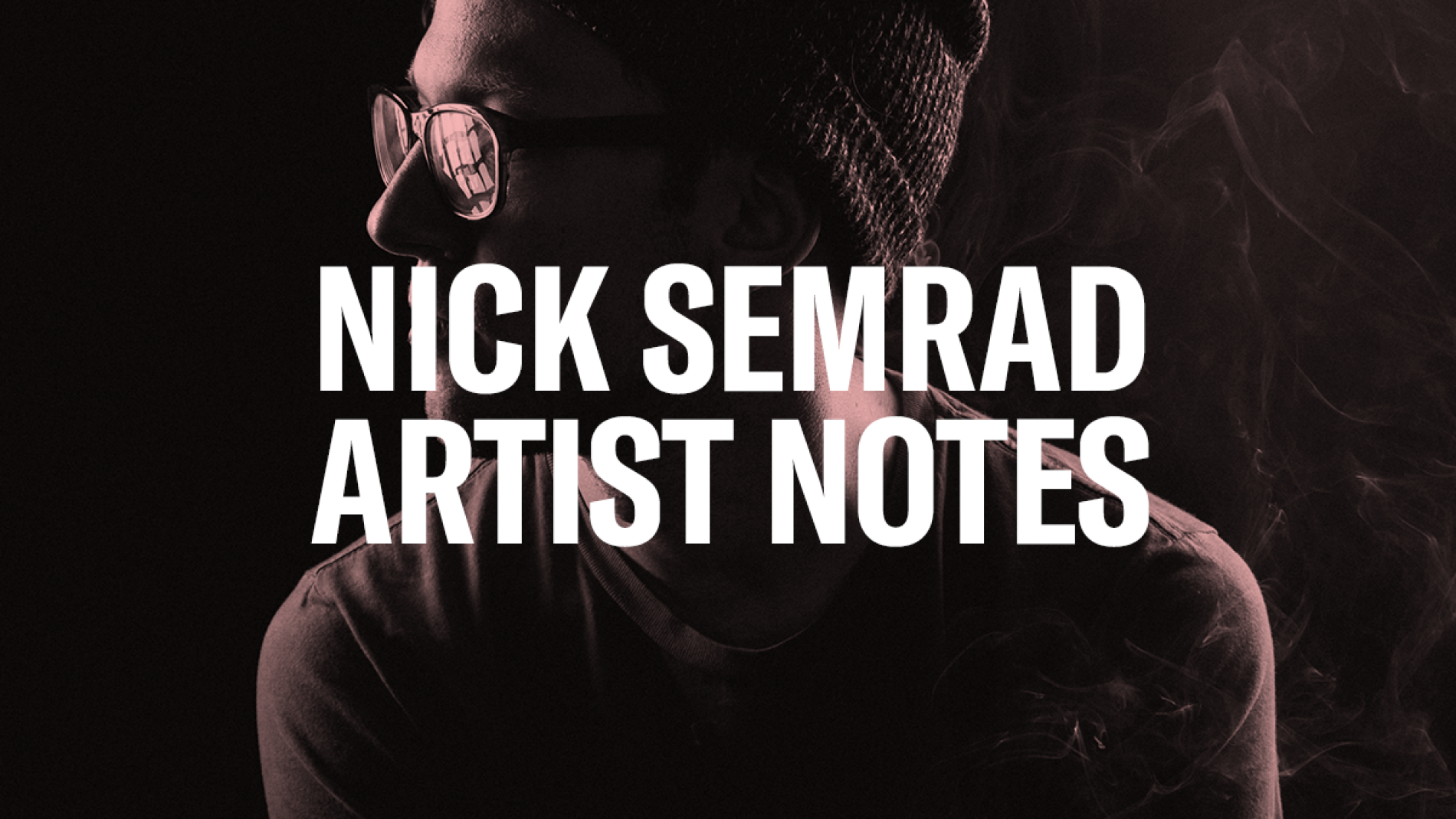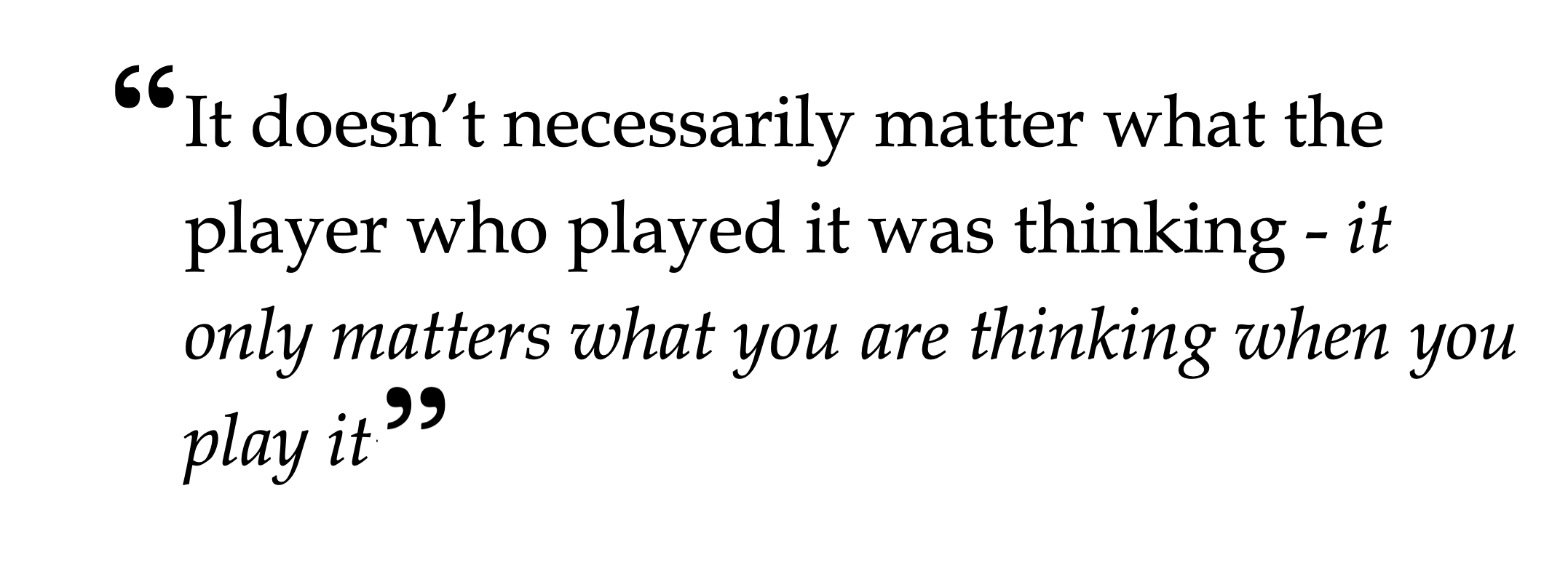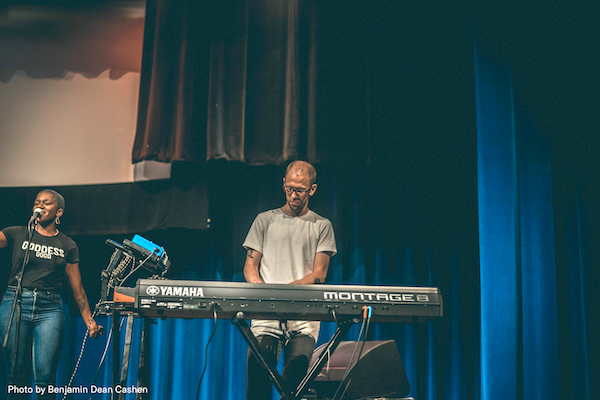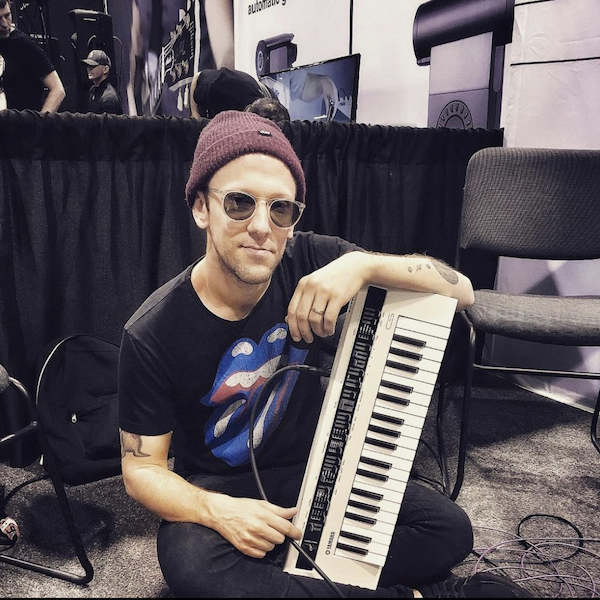Nick Semrad Artist Notes: The Importance of Ear Training

Tagged Under
The Benefits of Having a Great Ear
The subject of ear training gets routinely tossed around as something that young-and-hungry musicians should be working on. Oftentimes it’s placed right next to scales and sight reading on the list of everyday practice ‘musts’; I believe, however, that ear training may actually be the single most important key to learning everything you’ve ever wanted to understand about music.
Having a great ear means that you, on your own, can be educated by anything that you can hear. You won’t need to be told how to do something because all of the information that you’ll ever need will be right in front of you. Want to learn jazz? Use your ear to learn as many jazz tunes and solos as possible. Want to be great at church? Use your ear to listen to great church players and copy as many of their movements as possible. Want to become great at being an aux player? Learn every great aux part you can via listening. The more of these things you learn, and the more that you learn your own reasons for playing them, the better a player you’re going to be.
There are other benefits to having a great ear. It allows you to be able to hear what someone else in a group is playing and react to it quickly and creatively. It also allows you the ability to learn songs at a faster rate; the better your ear is, the less stressful that last-minute gig becomes. The part that benefits a musician the most, though, is that it allows you to capture musical moments and turn them into information. A good ear can act as a sort of ‘universal translator’ for any type of musical information that you want to learn and then apply.
Developing Great Ears
I’m aware that this probably sounds extremely broad, so let me put forth a few examples of how it can benefit you. Let’s say that you’ve just heard an extraordinary reharmonization of a hymn that you love and that it made you want to dive into learning how to do this. If you have a good enough ear, you can use it to pick apart every single note and chord one-by-one just by merely listening and then you can work on playing it along with the recording. If the recording is moving too quickly to hear each chord separately, there are many pieces of software available that we can use to slow it down (I use a program called “Transcribe!” that I highly recommend purchasing…it allows you to not only slow down recordings on a percentage basis but also to change the key).

Oftentimes I’ll slow something down to half speed and learn to play it at that tempo before incrementally speeding it up until I can play it at the same tempo as the recording. Once you’ve learned the notes and chords of this reharmonization, you now can analyze it in any theoretical fashion you want and use it as a tool to apply to other songs with similar harmonic situations. If you are then able to take that same musical moment and transpose it to every other key, you now have multiplied the applicable songs/situations by twelve. Once you factor in the number of different tempos you’ll have played this information in after this practice, your ear will have ‘translated’ one piece of information into a tool that can be used hundreds of different ways.
We can also use a trained ear to learn how to improvise. One of the most common pieces of advice that I give to young musicians that want to improvise better is to start learning solos that you love. We can use the aforementioned process to take on an entire Miles Davis solo; we can use our ear to learn the entire solo, one phrase at a time, until we can play it along to the record. The more solos that you learn in this way, the more of the ‘language’ of that genre that you’ll have under your belt (especially if you learn the solos in every key).
At this point, you may be asking yourself “how will playing the things I’ve learned along with the recordings help me if I don’t know what the player was thinking when they played it?” The answer is that it doesn’t necessarily matter what the player who played it was thinking – it only matters what you are thinking when you play it and how you are able to categorize it internally while you learn it. Sometimes players are thinking in a strategically harmonic way, but there are also many times when the player isn’t thinking much at all. I’ve definitely had students transcribe solo sections that I’ve played and attempt to explain them to me as specific theory tricks in some way when, in my head, I was merely playing something dissonant or ‘wrong’ in an attempt to convey an unsettling emotion.

A specific example that I use often is Cory Henry’s chord intro for his solo on the Snarky Puppy song “Lingus”. I know Cory well enough personally to where I can say honestly that he’s not thinking in the analytic ways that most of my students will think he is. He’s merely playing chord combinations that he thinks sound great together…. that’s it, and likely nothing more. Does this diminish the absolute beauty of what he’s playing? Absolutely not. Can other musicians learn this and then categorize it mentally in their own separate ways and become much better while not using Cory’s exact thought processes? Absolutely. A great ear can translate a musical moment coming primarily from emotion and turn it into a harmonic strategy, or vice versa.
Tricks of the Trade
A trick for strengthening your ear is to think of your ear or listening ability as a muscle that needs worked out. I’m sure we’re all aware that learning a multi-measure chord progression full of nine or ten note chord-voicings requires a much stronger ear than learning a Miles Davis solo, which in turn requires a much stronger ear than learning a simple nursery rhyme melody. If we think of this as a muscle that needs worked out, then we realize that there’s no wrong way to exercise it as long as we’re continuously exercising and pushing ourselves slightly farther than the previous practice session. If you were a beginning weightlifter, you wouldn’t start out by lifting 300 pound weights. Therefore, if you’ve never worked on learning something by ear, it may not be beneficial for you to start by learning the Lingus solo or something super deep like Wayne Shorter. Don’t be afraid to start by learning simple melodies. I often suggest that my beginning ear-training students learn simple Beatles’ melodies by ear. Slow the song down, learn it phrase by phrase, and don’t go on to the next phrase until you have the one before it, and then try to memorize the whole song well enough to play it along with the recording. Then do it again with a different song. And again. And again.

In a world full of teachers, books, and some of our idols telling us how vital music theory is, it may seem contradictory to read that ear training is atop my hierarchy of things to practice. I don’t want to infer that the greats knew nothing about theory or that they didn’t ever approach music theoretically; I have transcribed many players who were coming from theoretical mindsets, went to schools such as Juilliard or Berklee, or wrote entire pieces of music based on harmonic-theory practice drills. I’m only placing ear training above all of this because it seems to be the one thread that ties together the learning processes of ALL the greats. While the theory-minded players included ear transcriptions into their practice routines, there were also many greats who chose to eschew advanced theory training and instead learn merely by imitation and listening. I personally did not attend any type of academic music program or music school, and I work with some incredibly advanced players who have the exact same background. In addition, being a part of the gospel music scene for a few years allowed me the opportunity to see a number of children who were becoming very good pianists/organists at young ages merely by watching, listening, and imitating. Theory, college music courses, and expensive lessons can be a way forward, but I believe that ear training is the way forward.
Your ear will eventually be the greatest key that you’ll ever hold and will allow you to enter the door of any type of music that you wish to be able to play. Once it’s strong enough, and once you’ve mastered the process of learning something by ear, there will never be any intimidating information because you’ll know that whatever you just heard is only a few deep practice sessions away from you understanding it.
Have questions or comments? Join the conversation on the Forum here.
Keep Reading
© 2024 Yamaha Corporation of America and Yamaha Corporation. All rights reserved. Terms of Use | Privacy Policy | Contact Us